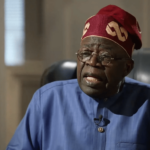Setting the stage
In the sprawling and narrow streets of Nigeria, despair hangs heavy in the air, while in the labyrinth of Nigeria’s power sector, a tale of rapaciousness, savagery, and betrayal unfolds, revealing the stark realities faced by 200 million Nigerians. Once a land of promise, Nigeria has become a landscape of broken dreams where the hopes of millions are dashed against the rocks of corruption, incompetence, greed, neglect, and lack of patriotism. Nigeria’s narrative is one of woes of SADISM, as those who ‘foists’ themselves on Nigeria while the constitution entrusted the nation’s well-being in their hands have instead driven it to the brink of collapse.
At the heart of this tragedy lies the contentious issue of the power sector; the unbundling of NEPA, and its subsequent pilfering, a decision made by short-sighted and naïve leaders. Nigerians were sold a dummy; the dream of reliable electricity with proclamations of improvement and advancement that would fuel economic growth and prosperity. Yet, this dream remains a mirage and painfully out of reach, as power outages, grid collapse, exorbitant tariffs, and thousands of excuses from power companies and government continue to plague the nation.
But the woes don’t end here. The recent removal of fuel subsidies has sent ‘electric waves’ through an already fragile economy, leaving 200 million shocked and incapacitated Nigerians struggling to make ends meet. Inflation runs amuck, the naira/dollar is on the yo-yo, and the cost of living is becoming a crushing burden on the average citizen. While on the other hand promises of relief fall flat in the face of reality, as palliatives meant to ease the burden of hardship are unstructured, withheld or siphoned – off to cronies and beleaguered political allies.
The much-touted salary increases offer little solace to those who remain employed, unemployed, underemployed, or trapped in the precarious grip of the informal sector not to talk of the pensioners, the elderly and vulnerable. And all the while those astride the executive or legislative or judicial corridors of power are ensconced in hard-to-believe luxury, seemingly oblivious to the suffering of Nigerians.
- Sen. Ndume, mass wedding, and the logic of people- driven corruption
- Police, bring perpetrators of Kano arson to book
Wired for failure
The Nigeria Dams Authority (NDA) and the Electricity Corporation of Nigeria (ECN) came into being in 1950 to generate and distribute electricity. However, to promote efficiency, NDA and ECN became the National Electric Power Authority (NEPA) in 1972. This National Assets/Monuments took the country 46 years to set up (1960s to 2007).
The National Council on Privatisation (NCP) led by the vice president handles the privatization and commercialization of public enterprises while the Bureau of Public Enterprises (BPE) is its secretariat, under took the process of unbundling NEPA in March 2005 when the Electric Power Sector Reform Act (EPSR) was signed into law providing a legal framework for the ‘auctioning of NEPA’s assets’ and to ‘obliterate the footprints’, lead to the formation of the Power Holding Company of Nigeria (PHCN) .
A look at the TCN website shows emergence of 18 companies which include 6 Generation Companies (GENCOs); Egbin Electricity – 1,320 MW, Kainji Hydro (Kainji -760 MW & Jebba – 578 MW), Shiroro Hydro – 600 MW , Delta /Ughelli Power – 972MW ,Afam Power -650 MW, Geregu Power – 435 MW; Transmission Company of Nigeria – the TCN and 11 Distribution Companies (DISCOs);Abuja DISCO, Benin DISCO, Eko DISCO, Enugu DISCO, Ibadan DISCO, Ikeja DISCO, Jos DISCO, Kaduna DISCO, Kano DISCO, Port Harcourt DISCO, and Yola DISCO.
The BPE, tasked with the privatization and commercialization exercise, a strategy akin to ‘crony capitalism’ and ‘pilfering’ of our National Assets and Common Patrimony, came into being during the hurriedly packaged thus clueless and tattered red umbrella civilian administration era.
Nigerians were told that the unbundling of NEPA was due to:
Nigeria’s population was growing so there is need to increase energy supply.
To break up NEPA into smaller units to improve the efficiency of electricity generation, transmission, and distribution.
To modernizing the power sector.
Introduce private sector participation and competition, which will lead to better service.
To make the power sector financially sustainable.
Above are commendable but it’s actually the pathway leading to the balkanisation of our national treasures.
Why a government will opt to liberalize its key economic sector, jeopardise the security of the nation and push its economy to the brink beats my imagination!
The power cabal
The cost of building NEPA, which became PHCN, is not explicitly documented in the available resources.
A report by Business Day Newspaper, captured the chairman of the NCP, Technical Committee, at a special forum on financing the power sector reform for economic development sponsored by Nigerian banks and supported by the CBN that approximately the sum of USD 3.3 bn was expected to accrue to the federal government from the sale of the unbundled entities.
How this figure was arrived at is a discourse for another day.
After all the partying as you will imagine, the sum of USD 2.137 bn to USD 2.53 bn was received from preferred bidders/core investors, with USD 1.27 bn for five GENCOs and USD 1.26 bn for ten DISCOs. (Two core investors where to pay theirs at a later stage)
From the special forum organise by Nigerian banks, it can be gleaned that funding for the purchase came from local investors through short tenored costly facilities thus highlighting the cold feet of, foreign investors refusing to participate in the privatisation exercise due to the country’s history of inefficiency and endemic corruption.
Lest we forget part of the reason for the unbundling was to attract foreign investors. Additionally, why collect payment in dollars while financiers are Nigerian banks and what happened to the proceeds?
After the pilfering of our national asset, Nigerians through various clueless administrations have funnelled fantastic sums in the name of subsidy, bailout, interventions etc to the inefficient electricity sector several times:
- In a draft report, the Centre for the Study of the Economies of Africa (CSEA) Abuja, Nigeria dated October, 2017 stated that CBN has extended NGN 213 bn facility to both GENCOs, DISCOs, Gas suppliers and all service providers in the power value chain, through its Nigerian Electricity Market Stabilisation Facility (NEMSF), which is to be repaid with a first-line charge on their revenues over a 10-year period.
- In 2017, a Punch Newspaper newsclip shows the Federal Government saying it will commit about NGN702 bn through the Nigerian Bulk Electricity Trading to guarantee the payment of electricity generated and supplied by power generation and distribution companies.
iii. In 2021, it was reported that Government has spent NGN1.7tn so far in form of INTERVENTION in the power sector as stated by the African Development Bank President while quoting an IMF report.
- In 2022- A report in Independent Newspapers shows the several interventions by CBN which include the Power and Aviation Intervention Fund (PAIF)-NGN300 bn, Nigerian Electricity Market Stabilisation Facility (NEMSF) -NGN213 bn, NGN140 bn for Solar Connection Intervention Facility, over NGN600 bn tariff shortfall interventions as well as a recent NGN120 bn interventions designed for mass metering among others. To sum it, in March 2022, the CBN through its Governor, at a Bankers Committee Meeting, said it had disbursed over NGN1.3tn to support the power supply to Nigerians.
- In August 2022, a report from the CBN shows that GENCOs and DISCOs owe banks NGN836bn.
- In July 2023, The Nigeria Gas Association disclosed that Gas debts has hit over USD1bn to gas producers who provide the gas required for running thermal gas-fired power plants.
In the Electricity Report released by the National Bureau of Statistics (NBS), revenue generation by electricity distribution companies in Nigeria has surged to NGN1.1trn within the 12 months of 2023.
Amid all these huge sums of money, Nigeria is still in darkness. So absurd!
Considering the substantial funds that the Nigerian government has expended when it submissively handed over our national treasures and significant loans provided by Nigerian banks thus far to the electricity sector, juxtaposed with the revenue from the sale of national monuments and darkness generated, it begs the question: which parties have profited or incurred losses from these transactions?
Continue online @www.dailytrust.com
Alhaji Adamu Rabiu wrote from Kaduna

 Join Daily Trust WhatsApp Community For Quick Access To News and Happenings Around You.
Join Daily Trust WhatsApp Community For Quick Access To News and Happenings Around You.


